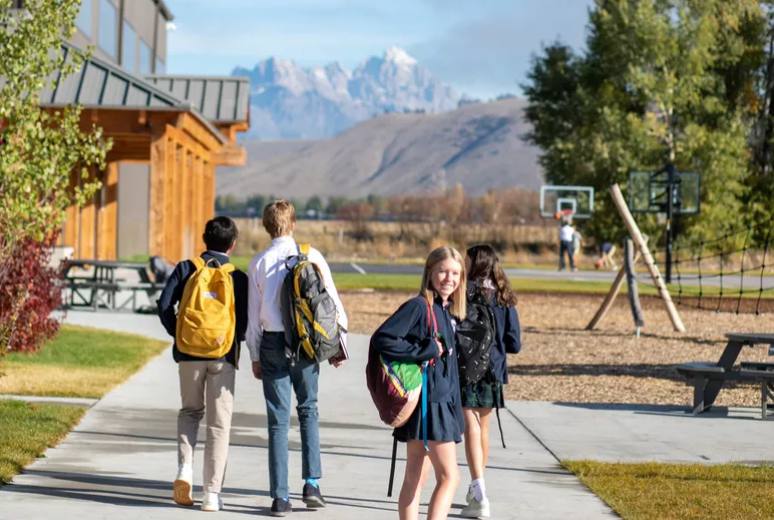
Jackson Hole Classical Academy in Jackson, Wyoming, one of 37 private schools in the state serving more than 2,700 students, is a private K-12 school in the classical, liberal arts tradition. Its mission is to cultivate wisdom and virtue in students so that they can contribute to a flourishing and free society.
Editor’s note: This commentary from Jason Bedrick, a research fellow at the Center for Education Policy, and Matt Ladner, director of the Arizona Center for Student Opportunity at the Arizona Charter School Association and reimaginED executive editor, appeared Monday on The Heritage Foundation’s website.
All children in Wyoming should have access to the highest quality education possible,” declared Gov. Mark Gordon, a Republican, in his recent proclamation declaring January 22-28 School Choice Week.
“Educational variety not only helps diversify our economy, but also enhances the vibrancy of our community.”
The Wyoming Legislature will soon consider a proposal to give families greater freedom to choose learning environments that align with their values and meet their children’s individual learning needs.
Education savings accounts, or ESAs, let families access state funds to pay for private school tuition, tutoring, textbooks, online courses, special needs therapy and numerous other educational expenses.
Ten states have already adopted ESA policies, including five in the last two years. It’s not hard to understand why.
The pandemic—and especially district schools’ response to it—awakened parents to the need for education choice. Unnecessarily long school shutdowns, mask mandates and concerns over the politicization of the classroom have propelled public support for education choice policies, like ESAs, to all-time highs.
In a RealClearPolitics poll last year, more than seven in 10 Americans said they supported education choice. But not everyone is on board. The teachers’ unions and their allies are doing everything they can to block families from accessing alternatives to the district school system.
In an effort to peel away votes from Wyoming legislators representing rural areas, opponents of ESAs are arguing that choice policies either don’t benefit rural areas or are harmful to rural district schools.
For example, the union-funded National Coalition for Public Education claims that education choice policies “don’t provide an actual choice for students living in rural areas” because the nearest private school is far away, therefore “students would often be required to endure long, costly commutes.”
Meanwhile, Carol Corbett Burris, the NCPE’s executive director, frets that education choice policies would supposedly create a “death spiral” for district schools “especially in rural areas” because when “kids leave the system, they leave behind all kinds of stranded costs.”
To continue reading, click here.